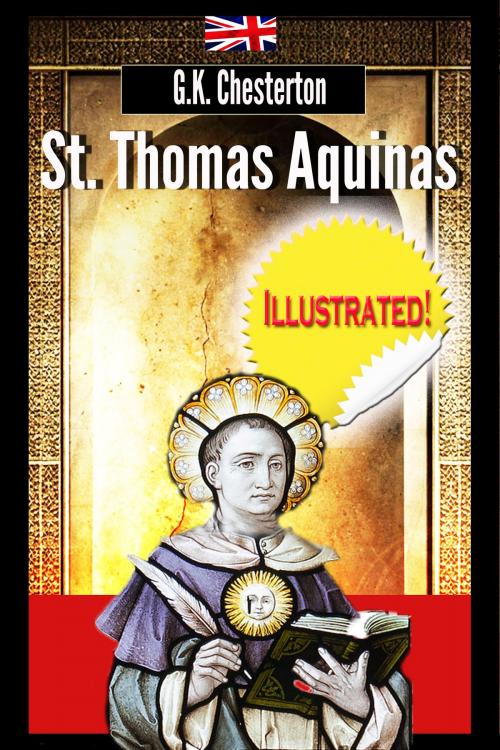| Author: | G. K. Chesterton | ISBN: | 9781928116073 |
| Publisher: | I Am First | Publication: | April 4, 2014 |
| Imprint: | Catholic Book Club | Language: | English |
| Author: | G. K. Chesterton |
| ISBN: | 9781928116073 |
| Publisher: | I Am First |
| Publication: | April 4, 2014 |
| Imprint: | Catholic Book Club |
| Language: | English |
Your Special Illustrated & Annotated edition includes: + 11 Brand New Illustrations – in Chisel sequence™ - of St. Thomas Aquinas by generative artist Myron Henkmen! + Bibliography of G.K. Chesterton – Humanities – since 1980 – Harvard format for quick Research + Glossary of Traditional Catholic Terms Here is the Chesterton's brilliant "sketch" of the great Scholastic theologian and Doctor of the Church St. Thomas Aquinas, nicknamed 'dumb ox' Chesterton's practical study serves as a refreshing antidote to dangerous aspects of modern society. He argues to restore true reason and rationality, to bring a measure of certainty where doubt and fear were sown by Luther and Voltaire, resulting in many of the horrors of the twentieth century. Chesterton deals swiftly with both facism on the one hand and socialism on the other and many other issues of the day, offering a hope amongst the perils of empty materialism. "Mr. Chesterton's volume on St. Thomas [is a] treatise of inestimable worth." --Leo McVay (1933 in Catholic Historical Review)
Your Special Illustrated & Annotated edition includes: + 11 Brand New Illustrations – in Chisel sequence™ - of St. Thomas Aquinas by generative artist Myron Henkmen! + Bibliography of G.K. Chesterton – Humanities – since 1980 – Harvard format for quick Research + Glossary of Traditional Catholic Terms Here is the Chesterton's brilliant "sketch" of the great Scholastic theologian and Doctor of the Church St. Thomas Aquinas, nicknamed 'dumb ox' Chesterton's practical study serves as a refreshing antidote to dangerous aspects of modern society. He argues to restore true reason and rationality, to bring a measure of certainty where doubt and fear were sown by Luther and Voltaire, resulting in many of the horrors of the twentieth century. Chesterton deals swiftly with both facism on the one hand and socialism on the other and many other issues of the day, offering a hope amongst the perils of empty materialism. "Mr. Chesterton's volume on St. Thomas [is a] treatise of inestimable worth." --Leo McVay (1933 in Catholic Historical Review)















